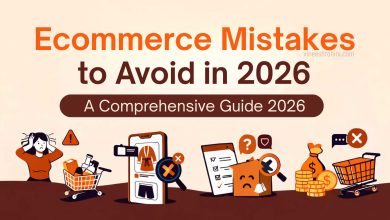Small Business Online Marketing: Strategies for Success
The online marketing has become a vital component of a small business’s growth and success. The internet provides endless opportunities for small businesses to reach and engage with their target audience, build brand awareness, and drive sales. In this essay, we will explore various strategies and tactics that small businesses can employ to effectively market themselves online and maximize their online presence.
I. Establishing a Strong Online Presence:
To kickstart your online marketing efforts, it’s essential to establish a strong online presence. This includes creating a professional website that showcases your products or services, provides relevant information, and incorporates elements of search engine optimization (SEO) to improve your website’s visibility in search engine results. Additionally, setting up social media profiles on platforms that align with your target audience can help you expand your reach and engage with potential customers.
II. Identifying and Understanding Your Target Audience:
Before implementing any online marketing strategies, it’s crucial to identify and understand your target audience. Knowing who your customers are, their preferences, and their online behavior will enable you to tailor your marketing efforts to effectively reach and engage with them. Conducting market research, analyzing customer data, and utilizing online analytics tools can provide valuable insights into your target audience’s demographics, interests, and online habits.
III. Search Engine Optimization (SEO):
SEO plays a vital role in driving organic traffic to your website. Optimizing your website and its content to rank higher in search engine results can significantly impact your online visibility. This includes conducting keyword research, optimizing your website’s structure and metadata, creating high-quality and relevant content, and building backlinks from reputable websites. Implementing SEO best practices will increase your chances of appearing in search results when potential customers are actively looking for products or services you offer.
IV. Content Marketing:
Content marketing involves creating and sharing valuable, informative, and engaging content to attract and retain your target audience. It can take various forms, including blog posts, articles, videos, infographics, and podcasts. By consistently producing high-quality content that addresses your audience’s pain points, answers their questions, and provides valuable insights, you position your small business as an industry expert and build trust with your audience. Content marketing also helps drive organic traffic, enhances your website’s SEO, and provides shareable assets for social media promotion.
V. Social Media Marketing:
Social media platforms have become powerful marketing tools for small businesses. By establishing a presence on platforms relevant to your target audience, such as Facebook, Instagram, Twitter, or LinkedIn, you can engage with your customers, build brand loyalty, and drive website traffic. Social media marketing involves creating compelling content, interacting with your audience, running targeted advertising campaigns, and leveraging analytics to measure the effectiveness of your efforts. It’s essential to choose the right platforms and tailor your content to each platform’s unique features and user demographics.
VI. Email Marketing:
Email marketing remains one of the most effective online marketing channels for small businesses. Building an email list of interested prospects and existing customers allows you to nurture relationships, deliver personalized content and offers, and drive conversions. Implementing opt-in forms on your website, offering incentives to encourage sign-ups, and segmenting your email list based on customer preferences can enhance the effectiveness of your email marketing campaigns. Providing valuable and relevant content, sending targeted promotions, and automating certain email sequences can help drive engagement and sales.
VII. Pay-Per-Click (PPC) Advertising:
PPC advertising allows you to place targeted ads on search engines and social media platforms. By bidding on keywords or targeting specific demographics, you can display your ads to a relevant audience and only pay when someone clicks on your ad. Platforms like Google Ads and Facebook Ads offer robust targeting options, allowing you to reach potential customers based on their search queries
, interests, demographics, and behavior. It’s crucial to set clear campaign objectives, conduct thorough keyword research, create compelling ad copy, and monitor and optimize your campaigns regularly to ensure a positive return on investment.
VIII. Online Reputation Management:
Managing your online reputation is critical for small businesses, as customer reviews and ratings can significantly impact your credibility and customer trust. Encourage satisfied customers to leave reviews and respond promptly and professionally to any negative feedback. Monitor online mentions of your brand and address customer concerns promptly to maintain a positive online reputation. Additionally, actively engage with your audience on social media, respond to comments and messages, and use social listening tools to stay aware of conversations about your brand.
IX. Mobile Optimization:
With the widespread use of smartphones and tablets, it’s essential to optimize your online presence for mobile devices. Ensure that your website is mobile-friendly, loads quickly, and offers a seamless user experience across different devices and screen sizes. Mobile optimization not only improves user satisfaction but also positively impacts your website’s search engine rankings, as search engines prioritize mobile-friendly websites.
X. Analyzing and Measuring Results:
To evaluate the effectiveness of your online marketing efforts, it’s crucial to track and analyze relevant metrics. Implement web analytics tools like Google Analytics to monitor website traffic, user behavior, conversion rates, and other key performance indicators. This data will provide insights into the success of your marketing campaigns, help identify areas for improvement, and guide future decision-making.
Conclusion:
In the digital age, small businesses have vast opportunities to grow and succeed through online marketing. By establishing a strong online presence, identifying your target audience, utilizing strategies like SEO, content marketing, social media marketing, email marketing, PPC advertising, and reputation management, small businesses can effectively reach and engage with their customers, drive website traffic, and increase conversions. It’s crucial to continuously monitor and adapt your strategies based on data analysis to ensure long-term success in the dynamic online landscape. With the right approach and consistent effort, small businesses can thrive and compete alongside larger competitors in the online marketplace.



